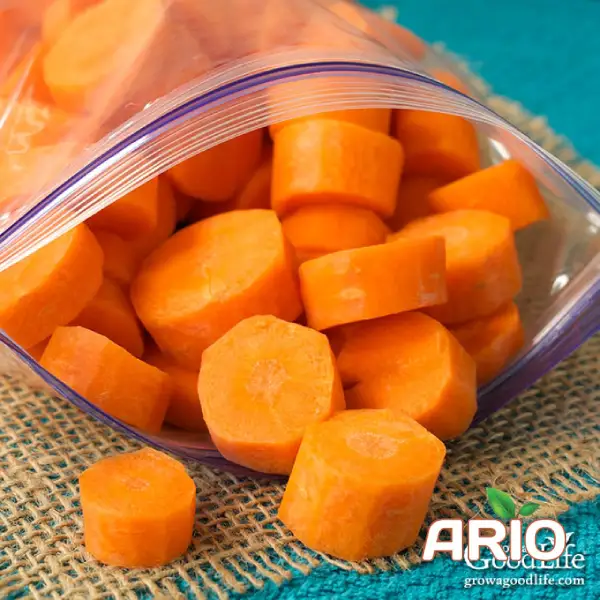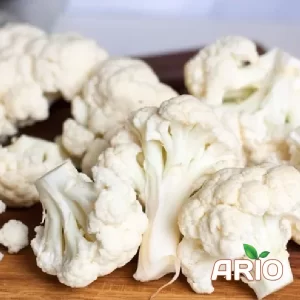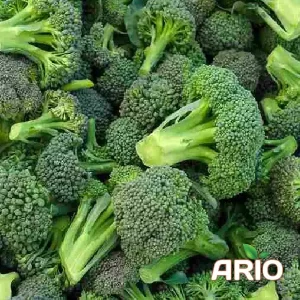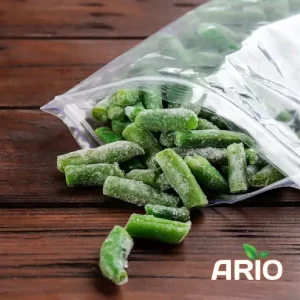Title: IQF Carrot Guide: Specifications, Benefits, and Export Insights
Key Nutritional and Quality Benefits of IQF Carrots
IQF carrots retain most of their original nutrients, including beta-carotene, vitamin A, vitamin K1, and antioxidants. According to food science studies, the rapid freezing process helps preserve enzymatic structure and color, leading to minimal nutrient degradation over time.
IQF also ensures consistent texture and appearance, making it ideal for ready-to-eat meals and processed food products. The ability to thaw only the needed quantity reduces food waste and enhances operational control for processors and foodservice buyers.
Available Cuts, Sizes, and Technical Specifications
IQF carrots come in various forms tailored to different culinary and industrial applications. These include:
1. Diced Carrots
Common sizes range from 6×6 mm to 10×10 mm. Often used in frozen meal kits and soups.
2. Sliced Carrots
Rings or crinkle cuts, typically 3–5 mm thick. Popular for stir-fries and side dishes.
3. Julienne Carrots
Thin matchstick-style cuts ideal for salads or high-end garnishing.
4. Custom Cuts
Suppliers offer flexibility to meet specific processing line or culinary requirements.
Cut consistency is essential for uniform cooking and packaging, especially in automated food manufacturing environments.
our product: IQF Vegetables
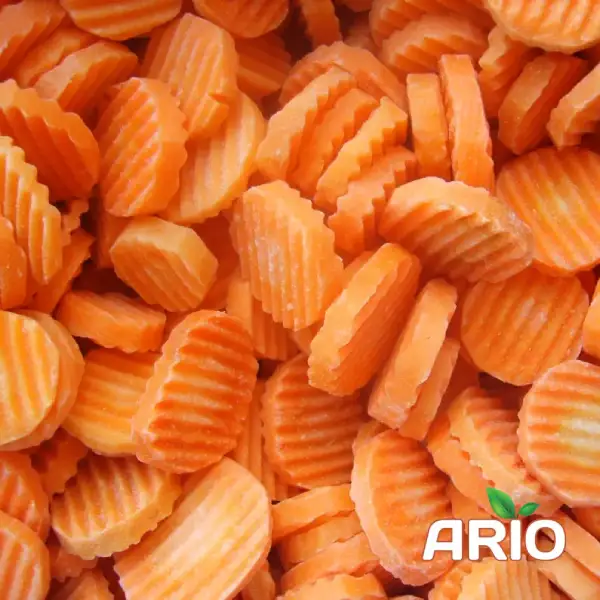
IQF Carrot Production Workflow and Quality Control
The IQF carrot production process follows strict protocols:
1. Raw Material Selection
Only fresh, mature carrots are selected, usually sourced from contract farms.
2. Washing and Peeling
Carrots are thoroughly cleaned and mechanically peeled to remove soil and impurities.
3. Blanching
A brief hot water or steam treatment deactivates enzymes, preserves color, and extends shelf life.
4. Quick Freezing
Using IQF tunnels, the carrots are frozen within minutes to lock in freshness and structure.
5. Metal Detection and Microbial Testing
Each batch undergoes stringent testing for foreign particles and microbial contamination.
6. Packaging and Storage
IQF carrots are packed in nitrogen-flushed pouches or cartons and stored at –18°C until shipment.
Global Certifications and Compliance Standards
For international trade, food safety certifications are mandatory. Top exporters of IQF carrots often hold:
- HACCP (Hazard Analysis and Critical Control Points)
- BRCGS (British Retail Consortium Global Standard)
- FDA (for U.S. imports)
- Kosher/Halal for dietary compliance
These certifications verify safety, traceability, and good manufacturing practices.
Packaging Formats and Shelf Life Logistics
IQF carrots are packed in bulk bags (10–25 kg), vacuum-sealed cartons, or smaller retail pouches. Properly stored at –18°C or lower, they maintain peak quality for up to 24 months. Oxygen barrier films and tamper-evident seals enhance integrity during long-haul exports.
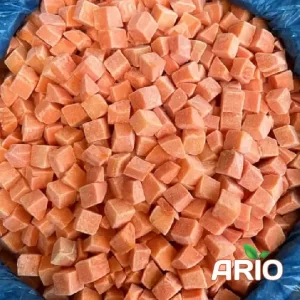
Global Sourcing and Export Markets
India and Vietnam are among the top producers. India alone exported around 10,000 metric tons of IQF carrots in 2023, with major supply coming from Haryana, Punjab, and Karnataka. Vietnam offers year-round availability, with stable production and favorable trade policies for frozen produce.
Key markets include the U.S., EU, Middle East, and East Asia, driven by demand for processed foods, ready meals, and institutional catering.
Common Applications in Foodservice and Manufacturing
IQF carrots are widely used in:
- Soups and stews
- Ready-to-eat meals
- Canned food pre-blends
- Pet food
- Beverage concentrates and baby food
Their firm texture and consistent cut size make them easy to incorporate into automated filling and cooking lines.
Key Buying Considerations for Bulk Procurement
1. Minimum Order Quantity (MOQ)
Typically starts from 1 metric ton, depending on the supplier.
2. Freight and Incoterms
Options include FOB, CIF, and DDP—buyers should clarify responsibilities.
3. Sampling and Quality Assurance
Request lab-tested samples with COA (Certificate of Analysis).
4. Seasonality
Peak harvest affects price and availability—plan procurement cycles accordingly.
5. Cold Chain Integrity
Ensure exporters use reefer containers with temperature logs.
Comparison of Carrot Formats by Key Attributes
| Carrot Format | Texture | Waste | Shelf Life | Convenience |
|---|---|---|---|---|
| Fresh Carrot | High | High | 7–14 days | Low |
| Block Frozen | Poor | Medium | 6–12 months | Low |
| IQF Carrot | Excellent | Low | 24 months | High |
IQF stands out for portion control, labor reduction, and minimized spoilage.
Market Outlook and Future Trends
With growing demand for healthy, ready-to-use ingredients, the IQF carrot market is poised for steady growth. Sustainability, reduced food loss, and increasing global trade partnerships will further boost demand. Importers are prioritizing suppliers who can provide traceability, eco-friendly packaging, and stable year-round output.
FAQ: IQF Carrot
1. What is IQF carrot?
IQF carrot is carrot that has been individually quick frozen at very low temperatures to preserve its natural texture, color, and nutrients.
2. How long does IQF carrot last?
When stored below –18°C, IQF carrot maintains peak quality for up to 24 months.
3. How is IQF better than regular frozen carrot?
IQF ensures each piece is frozen separately, preventing clumps and making it easier to portion and cook without thawing an entire block.
4. Where are IQF carrots sourced from?
Key suppliers are in India and Vietnam, offering year-round production and competitive pricing.
5. Can IQF carrots be used in food manufacturing?
Yes, they are widely used in soups, ready meals, beverages, and baby food due to their consistency and safety compliance.

